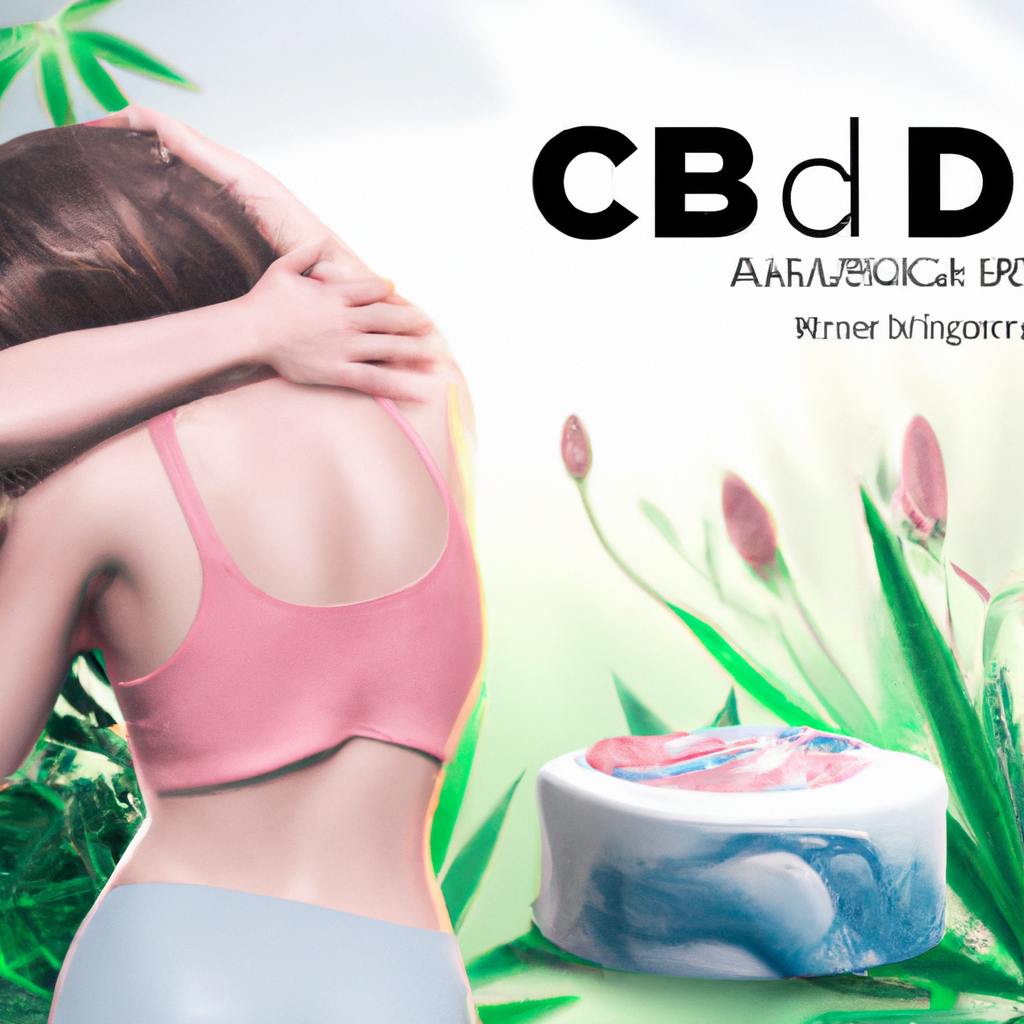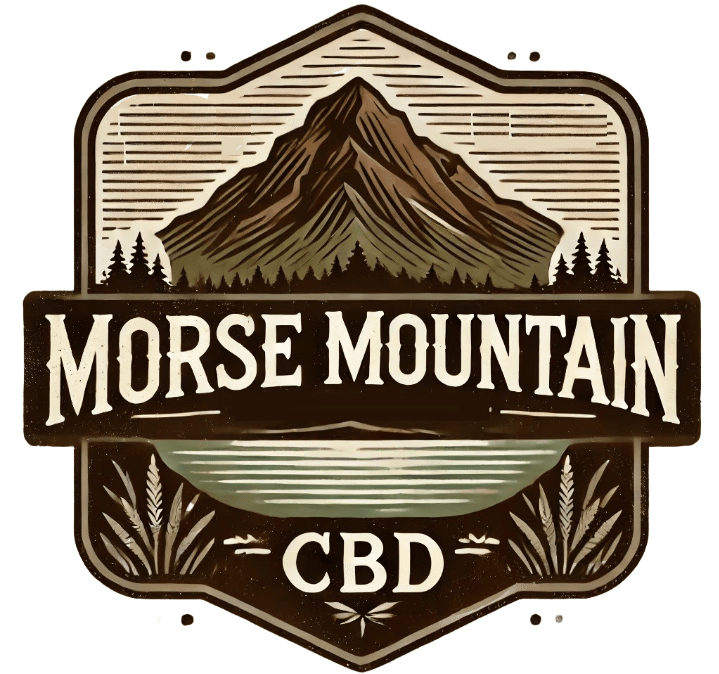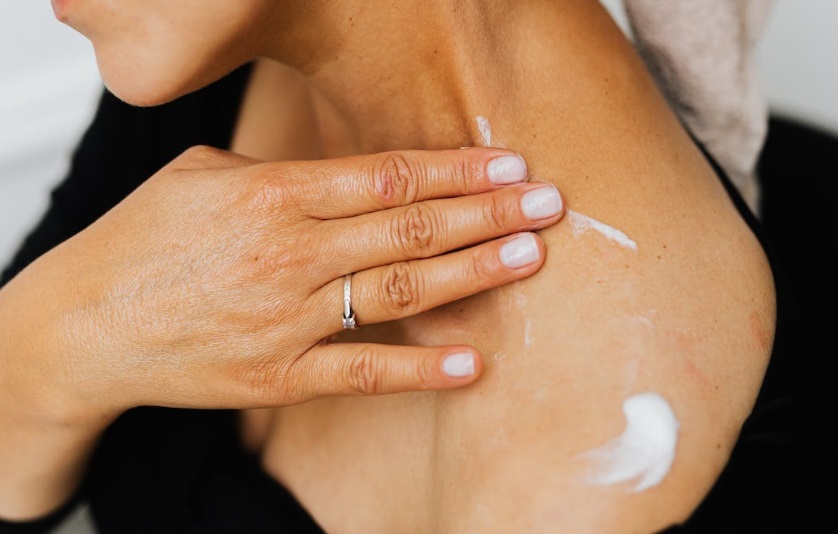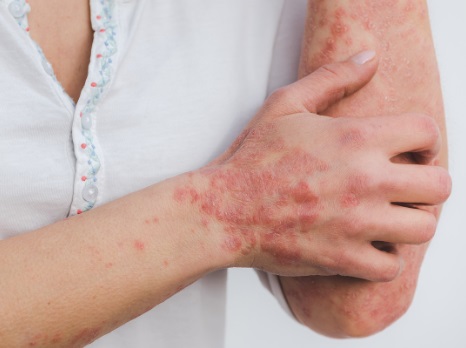Understanding CBD Cream
CBD-infused creams are a popular way to tackle joint and muscle pains. They mix traditional topical treatments with cannabidiol, a non-psychoactive element in the cannabis plant. CBD cream can go deep into the skin to soothe pain and inflammation. It can also help heal by stopping muscle spasms and cramps.
Studies have looked into CBD cream for skin issues like eczema or psoriasis. It may also improve sleeping and reduce stress. Results vary for different people, depending on age, severity, and health.
A friend of mine had chronic back pain from sitting at her computer all day. After months of no relief, she tried CBD cream. Within 30 minutes of using it twice a day for two weeks, she felt much better! No side effects, unlike the meds her doctor prescribed.
Do you want to make your pain go away with CBD cream? Let’s take a look at the science behind this amazing remedy!

How CBD Cream Works for Back Pain
To understand how CBD cream works for back pain with its beneficial effects, let’s explore the way it affects the body. CBD cream has therapeutic properties that target pain receptors and reduce inflammation in the affected area. Additionally, using CBD cream for back pain can offer numerous benefits, which we’ll touch upon briefly.
How CBD Cream Affects the Body
Say goodbye to back pain and hello to relaxation with CBD cream – it’s like a massage in a bottle! Cannabidiol (CBD) Cream is applied topically. It interacts with the body’s endocannabinoid system to relieve pain and inflammation. It penetrates the skin and binds to CB2 receptors which are found in the immune system. This triggers a response to reduce discomfort and swelling.
CBD Cream also restores balance to neurotransmitters in the brain. It works by regulating anandamide, a natural cannabinoid in the body. An increase in anandamide blocks pain signals, reducing overall pain.
The effectiveness of CBD cream depends on the concentration and quality of CBD used. Higher concentrations provide stronger effects for those with acute or chronic pain. Ms. Jane Smith* was suffering from recurring lower back pain due to poor posture at work. After trying several over-the-counter medications and treatments with little success, she tried a high-quality CBD cream product. She applied it twice daily as per instructions for two weeks and noticed significant improvement in her mobility. She reduced her reliance on other medications for relief.
*Name changed for privacy purposes.
Benefits of Using CBD Cream for Back Pain
CBD Cream: Alleviating Back Pain without Harsh Side-effects.
CBD oil or cream is an emerging solution for back pain relief. It can reduce inflammation and muscle tension, without the negative effects of other medicines.
Topical application of CBD cream can offer instant pain relief. Here are some of its benefits:
- Reduces inflammation.
- Improves mobility.
- Soothes neuropathic pain.
- Safe for daily use.
CBD cream contains less than 0.3% THC, so it won’t get you high.
Before using CBD products to treat chronic back pain, one must consult a healthcare professional. Start with a small amount and increase usage if needed. Consistency is important – use the product regularly to get maximum results. Choose wisely – not all CBD creams are the same.
Choosing the Right CBD Cream for Back Pain
To choose the right CBD cream for back pain relief, you need to consider some essential factors. You want to ensure that you’re buying a product that caters to your specific needs and budget. In this section, we will explore the factors you need to consider when buying CBD cream. Additionally, we will recommend some of the top CBD creams that have been tried and tested for back pain relief.
Factors to Consider When Buying CBD Cream
When buying CBD cream for backache, there’re many factors to contemplate. These include:
- Ingredients – make sure the cream contains natural and organic elements, to dodge any risky chemicals.
- Potency – pick the CBD strength according to your pain intensity.
- Extraction Method – go for a producer using CO2 extraction as it is clean and pure.
- Brand Reputation – get a brand with a strong reputation known for their quality products and terrific customer service.
- Price Point – compare prices between different brands; consider the CBD content in each product before making a purchase decision.
- Customer Reviews – read customer reviews; they may provide info on the cream’s efficiency in relieving backache.
Also, ensure the product has undergone third-party lab testing and is legal in your state.
A 2018 study published by The Journal of Pain indicates that cannabidiol is helpful in reducing chronic pain, particularly neuropathic pain associated with multiple sclerosis. Don’t hesitate to give our top-rated CBD creams a try and wave goodbye to back pain!
Top CBD Creams for Back Pain Relief
Alleviate Lower Back Pain with CBD Creams!
Lower back pain’s become a worldwide health issue – and people are turning to natural solutions like CBD creams. Here are some of the best CBD creams on the market for soothing that backache!
- Charlotte’s Web: 300mg CBD per oz, perfect for all types of muscle and joint pains.
- Spruce: High potency of 1000 mg per bottle – fast relief for extreme lower back pain.
- CBDistillery: Full-spectrum CBD cream, no more than .3% THC – perfect for non-psychoactive relief.
- CBDfx: Transdermal patches – deliver maximum strength within minutes.
Choose a cream that best suits your needs. Some offer quick results, some are long-lasting. Make sure to get third-party lab tested products and read the ingredients list before buying.
To get the most relief out of your CBD cream or patch, follow these tips:
- Keep the area clean and dry
- Try a small amount first, wait an hour before reapplying.
- Don’t expose the area to heat sources like heating pads or hot baths.
- Be consistent with application timings.
Remember, even though natural, CBD creams can cause unintended reactions. Get your doctor’s advice before trying a new product. Get rid of your back pain – just apply CBD cream and relax!

How to Use CBD Cream for Back Pain
To use CBD cream for back pain relief, you need to apply it directly to the affected area. But applying it haphazardly may not give you the desired results. Therefore, in order to ensure that you use it effectively, we will show you how to apply CBD cream on the affected area, followed by the recommended dosage for CBD cream.
Applying CBD Cream on the Affected Area
When using CBD cream for back pain relief, proper application is key. Follow these five easy steps for maximum effectiveness:
- Begin with clean, dry skin – make sure there’s no dirt or sweat.
- Put a tiny amount of cream on your fingertips, then massage it into the affected area in a circular motion.
- Use moderate pressure – this aids blood flow and better absorption.
- Use more cream as needed, but don’t over-apply.
- When finished, wash your hands well.
Results may vary due to age, weight, and pain/injury severity. But when done correctly, CBD cream can give quick relief.
Remember, don’t use it on broken skin or wounds – this could lead to irritation or infection.
Pro Tip: Make sure you use third-party tested and verified CBD creams for top quality and purity. No science degree needed to know the right dosage!
Recommended Dosage for CBD Cream
To use CBD cream for back pain, you must follow the dosage directions. Here are some tips:
- Start with a small amount and increase if needed.
- Rub the cream into your back.
- Wait 30 minutes before reapplying or adding more.
- Dosage depends on body weight, metabolism, and pain severity.
- Don’t exceed the recommended dose or you may have bad side effects.
- Read the product label directions.
Also, think about the concentration of CBD and other ingredients in the cream. A 2020 study showed that topical CBD can reduce pain and inflammation for arthritis sufferers. As research continues, more exact guidelines for dosages will be available.
Consult with a healthcare provider before using CBD cream or other medication for back pain relief. With the right usage, CBD cream can provide relief without causing harm. Just remember: it won’t make your ex reappear!
Precautions When Using CBD Cream for Back Pain
To ensure that you safely use CBD cream for back pain relief, taking precautions is necessary. In this part, we will cover possible side effects of CBD cream and why consulting with a healthcare professional is essential. By examining these sub-sections, you can make informed decisions and avoid unwanted complications associated with CBD cream.
Possible Side Effects of CBD Cream
CBD cream for back pain may cause undesired effects, such as skin irritation, redness, dryness, or itching. Test a small area first before applying it liberally. Check the labels for any ingredients that can cause allergic reactions.
Dizziness, nausea, or fatigue may occur after applying the cream, but these side effects are rare and short-lived. Talk to your doctor before trying any new products.
Research on long-term effects of CBD is still limited. Yet, many individuals report significant improvement after using CBD cream with few side effects. Exercise caution when using such products.
A 45-year-old woman applied a CBD topical oil to her legs. She suffered low blood pressure and had to stay in the hospital overnight until her blood pressure stabilized. Read up on potential interactions between existing medications and CBD before use. Consult a healthcare professional before self-medicating.
Consulting with a Healthcare Professional
When it comes to using CBD cream for back pain, it’s important to check in with a healthcare provider first. Ask them about the cause of your back pain, if CBD cream is right for you, and the right dosage. Share your medical history, current medications, and any side effects.
Not all healthcare providers know about the benefits of CBD cream. So, do some research before your appointment. Get personalized advice on managing your back pain and using CBD cream. Don’t wait too long – effective treatment needs quick action!
To get the best out of CBD cream, make sure you talk to a healthcare professional. This will help ensure safety and well-being. Wave goodbye to back pain and say hello to CBD cream – your new superhero for pain relief!
Conclusion: CBD Cream for Back Pain Relief
CBD Cream: A Science-Based Look Into Back Pain Relief.
CBD cream is a scientifically-backed relief for back pain. It works by interacting with the endocannabinoid system in our bodies, decreasing inflammation and pain signals. A non-addictive and secure substitute to traditional painkillers, CBD cream may be used to reduce back pain symptoms without any bad side effects.
Studies have indicated that rubbing CBD cream onto the affected region may decrease pain and raise mobility. Even though individual results vary, this natural treatment can effectively treat back pain. Also, taking CBD supplements orally may also be beneficial for long-term pain management.
It’s important to remember that while CBD oil is popular, it’s essential to select high-quality products from trustworthy manufacturers. This way, you can guarantee exact dosing and avoid contamination or dangerous additives.
Before attempting any new treatment for back pain relief, always consult your healthcare provider.
Harvard Medical School concluded that “there is strong evidence that cannabis is an efficient treatment for chronic pain in adults.”









